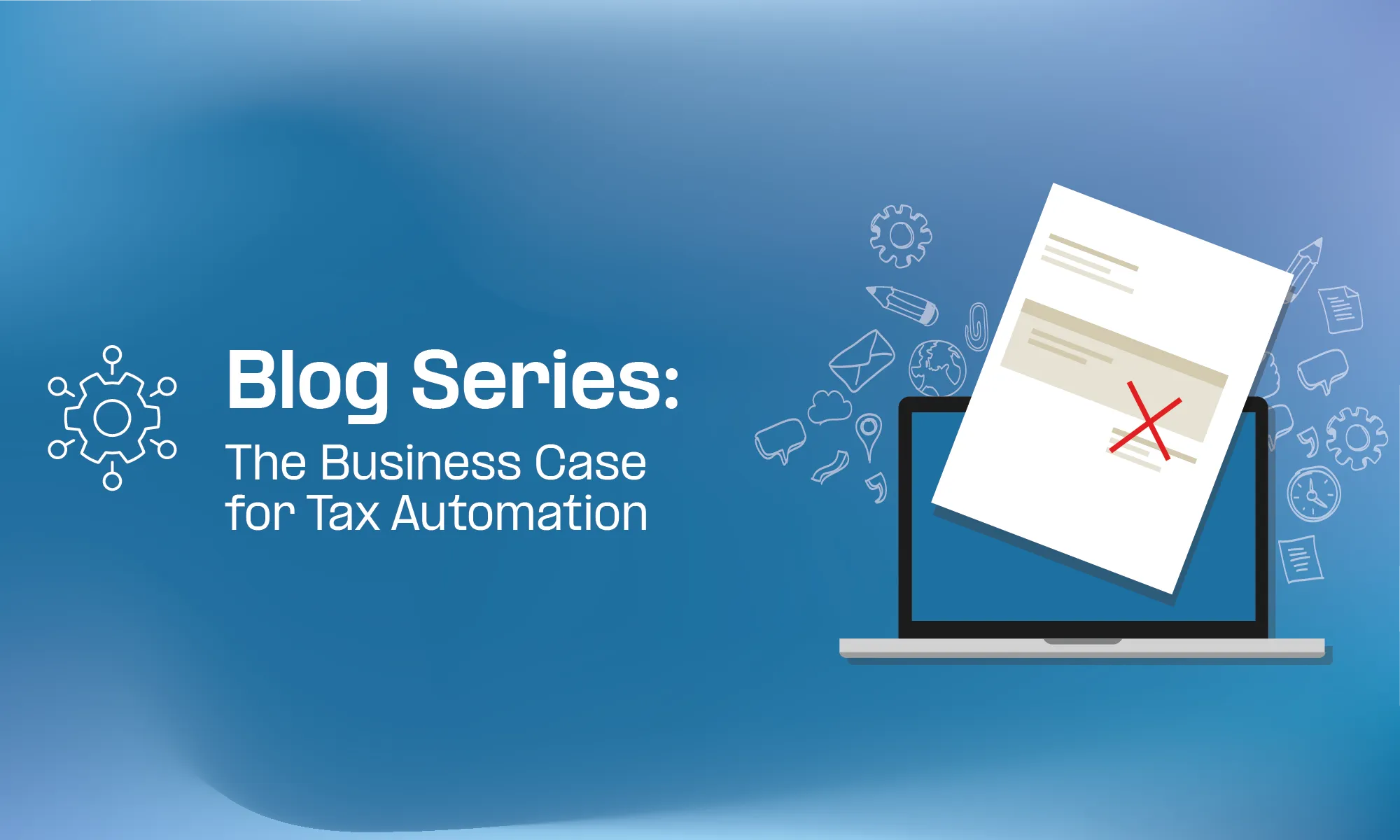What is DAC7?
DAC7, short for the 7th version of (or the 6th amendment to) the European Council Directive on Administrative Cooperation and Automatic Exchange of Information in the Field of Taxation, is part of an initiative to improve tax cooperation between European Union countries. It allows EU member states and tax authorities to track the activity of taxpayers on online platforms and simplifies the collection of indirect taxes by local tax administrations by introducing tax transparency rules. The DAC7 directive was approved by the European Commission on March 22, 2021, with the new reporting rules applicable from January 1, 2023.
Under the new rules (DAC7), Online platforms (e.g. marketplaces) need to collect and verify the identification information of EU sellers who use their services and report information each year to their local tax authority. The local tax authority will then make the information available to all tax authorities across EU member states, creating transparency on taxpayer activities in all EU member states. This reduces the needs for complicated multilateral joint audits by various member states, in case that for example a taxpayer is not registered in the member state that requires information on a seller on the online platform.
The new reporting obligations are similar to the OECD’s model rules for Reporting by Platform Operators concerning Sellers in the Sharing & Gig Economy from 2020.
Who is affected by the DAC7 rules?
The DAC7 rules apply to digital platforms operators that facilitate the sale of goods or services, the rental of immovable property, or the rental of any mode of transport.
Digital platforms include software applications (for mobile or desktop), websites, or parts of a website that connect sellers to buyers and allow them to carry out sales transactions (DAC7 calls these “Relevant Activities”).
Some platforms are excluded, such as:
- Payment processing platforms (e.g., Stripe, Wise, PayPal, Adyen, etc.) However, Payment Service Providers are captured by some other EU reporting obligations from 2024.
- Platforms that only list items or services for sale or rent but do not take part in facilitating the transaction and/or are not necessarily aware of the value of transactions (e.g., Facebook marketplace, Craigslist).
According to the EU directive, the operator of a digital platform that facilitates sales transactions is called Reporting Platform Operator. This usually means the actual company running the platform.
Platform Operators are either tax residents in an EU country, or are companies registered in an EU country, or have their headquarters or a permanent establishment in the EU.
Non-EU Platform Operators are companies who aren’t present in the EU in any way but who might still be facilitating the cross-border sales transactions of EU sellers.
What are the reportable transactions, and who are the reportable sellers?
As per the new DAC7 reporting requirements, transactions that Platform Providers need to report are known as Relevant Activities, which include:
- The rental of immovable property, including residential and commercial property and parking spaces (e.g., Airbnb, Booking.com)
- The rental of any mode of transport (e.g., Turo, Click&Boat)
- Time or task-based personal services carried out at the request of a user (e.g., Uber, Upwork, Fiverr)
- The sales of goods (e.g., through e-commerce platforms like eBay, Amazon)
Transactions need to have a monetary value to be considered reportable and be paid to the seller in a way that is verifiable by the digital platform.
Reportable sellers are either EU tax residents (individuals or companies) carrying out taxable transactions according to the above definition or non-EU sellers renting out immovable property in the EU.
Sellers of goods with less than 30 transactions and for less than EUR 2,000 (in total per year) are excluded from the platform’s reporting obligations.
What and when to report?
Platform operators need to collect and report details on the following:
- The seller’s personal information (name, date of birth, primary address)
- Their tax identification number (TIN and/or VAT number)
- Business registration number
- Transaction amounts
- Financial accounts used
- Fees and taxes withheld by the platform operator
- The rental property’s address & rental periods (for each property)
Platforms need to report information by January 31, following the calendar year in which the reportable seller has used their services for selling goods or services, with the first reporting period being the year 2023. For pre-existing sellers, platforms have until 31 December 2024 to complete due diligence procedures and validate sellers’ personal and tax identification information and collect any missing information.
Non-compliance with the new DAC7 EU directive can lead to significant penalties that vary from country to country and are payable to the local tax authorities. Platform operators will also need to close sellers' accounts who fail to provide all necessary information after two reminders.
Operationally, platform operators need to take extra care to ensure the data accuracy of the underlying activities and identities of sellers and buyers on their platform. Because even aside from some of the formal consequences listed above, in case incomplete or wrong data is reported platform operators will have to spend significant resources handling tax authority follow up questions. Which will lead to additional manual research and data collection work.
How to comply?
Platform Operators in scope of DAC7 can fulfil their reporting obligations for the entire EU by submitting all of their EU data in one member state. EU tax authorities will then distribute the submitted data among themselves, similarly to the EU’s One Stop Shop for VAT.
Platform Operators that have at least one registered entity (or permanent establishment) in one of the EU member states must perform their data submission to the respective country’s tax authority. Platform operators with multiple entities across EU member states can choose any of these countries for submission.
Platform operators with no registered presence (nor permanent establishments) in an EU member state can choose any EU country to perform their data submission. If there is an already existing agreement between the EU and the country where the Platform is located (e.g., the UK is expected to become an EU-approved jurisdiction for reporting from 2024).
Data submissions to tax authorities will need to be performed by way of a direct connection through the internet, e.g. through a tax authority API, SOAP or similar electronic method.
Platform Operators can build out the direct tax authority connection internally, or they can also engage external providers to handle the electronic data submission on their behalf.
Penalties
As mentioned, in case of non-compliance tax authorities can impose significant penalties on Platform Operators. Penalties differ in every country, ranging from a few thousand euros per incorrect seller record to EUR 900,000 in the Netherlands in case a Platform Operator intentionally avoids its reporting obligations.
On top of financial penalties, in serious cases, the EU can decide to block access to non-compliant Platforms completely.
Similar rules across the globe
Data sharing regulations like DAC7 are not completely new or unique to the EU. Before DAC7, multiple EU countries had similar regulations targeted at short-term accommodation rental, ride-sharing or other sharing/gig economy industries. These examples include Spain, France or Austria.
Having realized the need to introduce similar measures, many countries outside the EU are also following suit, either following the OECD’s model rules or not.
Although no longer in the EU, but still closely tied to its economy is the UK, which will likely be the first country to introduce DAC7-compatible data sharing measures (meaning, platforms will be able to fulfil their EU reporting obligations in the UK as well).
If we zoom out further, we can find like-minded measures being implemented across the globe in countries like Australia, New Zealand, and Canada.
To a certain extent, we can argue that recent changes in US regulations (lower threshold for 1099-K returns) are also on brand with the global waves of data sharing regulations aimed at the sharing/gig economy.
Data collection and completeness issues
The journey to DAC7 compliance starts with the collection of data from platform sellers. The level of difficulty in this task is dependent on historic data quality within the platform. Some platforms will have most of the required data ready at hand. For them, the biggest task is consolidating and validating this data.
Platforms that have little to no data from what is required have the benefit of building out their data structure suitable for DAC7 reporting in the first place. For them, the hard part is asking their sellers to submit all of this highly sensitive data that they were not required to share with their platforms previously. This will include building a strategic outreach plan that requires careful planning that must take personal angles into consideration as well.
Once all the data is consolidated, then comes the issue of making sure that what you have is actually presentable to the tax authorities. DAC7 requires that you validate the tax ID(s) provided if this is possible to do via a freely available official electronic database. As many of us know, this is usually not the case for tax IDs of private individuals and sole traders.
According to DAC7, regarding all other data points, Platforms need to determine whether the information collected is reliable. This means that Platforms must invest resources into checking that data they have is real and if it is actually connected to the respective seller.
Interaction of GDPR and DAC7
One common question (or concern) is the interaction between DAC7 and the recently introduced data protection regulations in Europe. While DAC7 requires platform operators to collect, validate and report data, the General Data Protection Regulation (GDPR) will require them to do so while not infringing the reportable sellers' right to the protection of their data.
What is clear is that GDPR does not prevent or excuse platform operators from collecting the required data from reportable sellers.
To stay GDPR compliant, platform operators will need to, amongst other things, inform individual reportable sellers that their information will be collected and reported to the competent authorities.
How can Fonoa help?
Starting from 2024, Digital Platforms must file DAC7 reports across the EU. Platforms will not only have to start collecting all required data points from new sellers but will also need to collect and validate the data of their pre-existing sellers.
With our tax number validator, you can validate tax IDs from 100+ countries in bulk and individually and return necessary information from local databases like company name and address.
Regarding DAC7 submissions, our Data Sharing product will guide tax professionals towards compliance and automate technical complexities so you can save time while owning and controlling the end-to-end process.
Put your time and energy back into your business, not tax compliance!
Get in touch to automate these Data Sharing and DAC7 compliance processes.
Read more with our Essential Guide to DAC7 and listen to our webinars on DAC7 and Tax ID Validation.
















